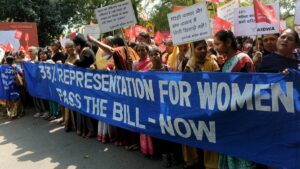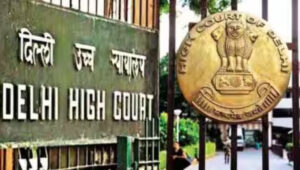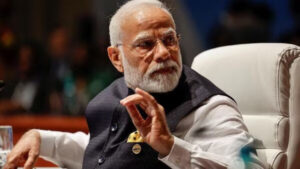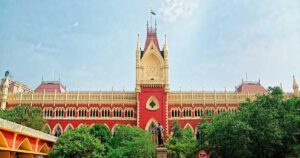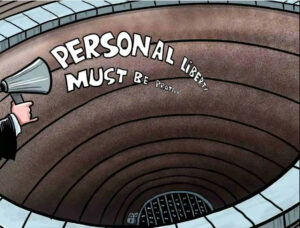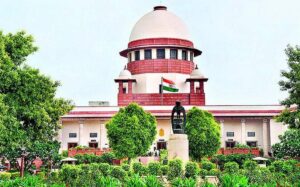Law and Legal news
Settling has its advantages. It provides quicker compensation that can help cover medical bills and lost wages without enduring a lengthy trial process. However,…
On September 22, 2024, the Supreme Court extended an earnest…
Among the speculated outcomes were not only the reservation for women but also proposals related to Other Backward Classes, the concept of “One Nation One Election,” and even the potential alteration of the country’s name. As the cabinet meeting concluded, hopes for clarity were met with continued suspense, as the customary post-meeting briefing was conspicuously absent. Shortly after, authoritative sources confirmed that the buzz surrounding the approval of the women’s reservation bill was indeed accurate.
In a significant development, the Calcutta High Court has recently issued a circular delineating comprehensive…
Heavy security is in place in Haryana’s Nuh, the place where communal violence broke out…
The discourse delivered by Justice Siddharth Mridul of the Delhi High Court at the Centre for Discourses on Criminal and Constitutional Jurisprudence emphasized the crucial significance of personal liberty and the principle of presumption of innocence within the framework of the criminal justice system. The discourse shed light on the evolving nature of these principles, their historical context, and their relevance in contemporary democracies.
Justice Mridul’s address commenced with the assertion that personal liberty is a cornerstone of civilization, not just a modern concept. He traced its historical evolution from conflicts between subjects and monarchs to the present-day struggles between citizens and the executive branch in democratic societies. Protecting individual liberty remains a central obligation in a thriving democracy.
The principle of presumption of innocence was highlighted as the “elixir” of the criminal justice system by Justice Mridul. He discussed its progression from being recognized as a human right by the Supreme Court to its elevation as a fundamental right in India. This presumption, he argued, is vital not only for shielding the innocent but also for upholding the integrity of the legal process.
Justice Mridul delved into the emergence of constitutional guarantees as contemporary safeguards for personal liberty against state intervention. He explained that the act of guaranteeing liberty implies a higher authority that ensures it as a special privilege. The Constitution’s role in safeguarding personal freedom from legislative actions encapsulates the essence of this guarantee.
The discourse further explored the tension between the crime control model and the due process model. While the former emphasizes punishing the guilty and may lead to wrongful convictions, the latter prioritizes the rights of the accused, even if some guilty individuals go unpunished. Justice Mridul emphasized that both models share the common goal of punishing the guilty while safeguarding the innocent.
Justice Mridul underscored that the presumption of innocence is intricately linked to the concept of bail. He acknowledged the state’s interest in preventing serious offenses but argued that traditional bail rules are sufficient to achieve this goal. These rules necessitate a comprehensive assessment of factors such as the accused’s background, the strength of the case against them, and the gravity of the offense before granting bail.
In conclusion, Justice Mridul emphasized that every accused individual, irrespective of their charges, is entitled to the presumption of innocence and the fundamental principles of fairness enshrined in Article 21 along with Article 14 of the Indian Constitution. He cautioned against treating two offenders differently with regard to the presumption of innocence, as this would violate Article 14.
Justice Siddharth Mridul’s discourse served as a poignant reminder of the vital role that personal liberty and the presumption of innocence play within the criminal justice system. His insights underscored the delicate balance that legal systems must maintain between crime control and due process models. This discourse encourages law students and legal practitioners to champion the safeguarding of fundamental rights and uphold the principles upon which modern democracies are constructed.
Shaping the Future: NLSIU’s Vision Expands Beyond Borders- Bengaluru, 26th August: The National Law School…
CJI, DY Chandrachud spoke volumes about his internal dialogues on the nature and status of Law communities and its practices in India.
In a recent development, the Supreme Court of India has taken a significant step by…
Web Stories
Latest Posts
Contact us:
online@asianatimes.com
Copyright © 2024 Asiana Times. All Rights Reserved









